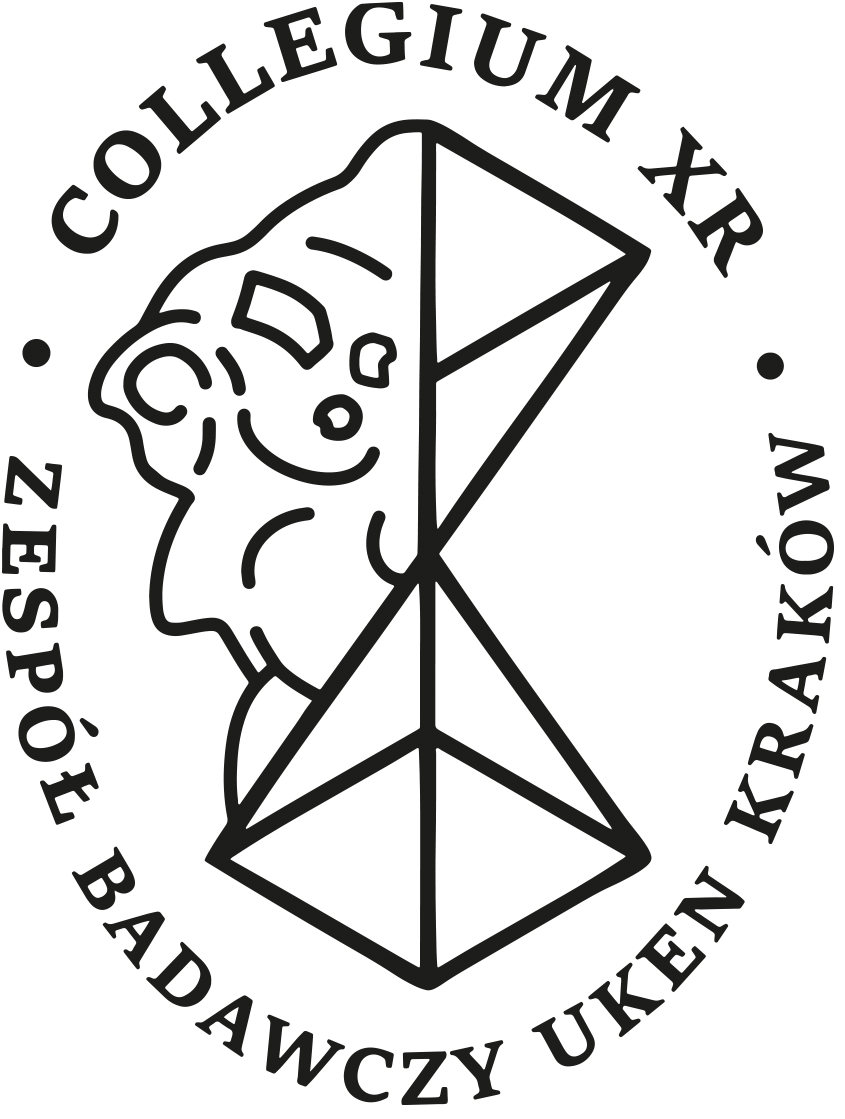Digital Archives of Małopolska 2018

Małopolska’s digital archives: Artificial intelligence and augmented reality as sharing digitization
A two-day event combining a scientific conference, networking and free workshops. A creative session, lectures and a discussion to create a manual for sharing digital archives took place on June 19 and 20 at the Bunkier Sztuki Contemporary Art Gallery. The lecture was broadcast by social media of the Bunkier Sztuki Contemporary Art Gallery and the Faculty of Art of the Pedagogical University.

We collected 7 hours of substantive material to create a manual for the effective sharing of digital resources, we met people from monetization-oriented environments (Krakow Technology Park), as well as the environment of interactive contemporary art (Galeria Bunkier Sztuki – thank you!). According to CCD cameras, 104 people visited us and 35 people watched us online.
For 8 years, the process of digitization has been progressing in Polish culture, combined with the emergence of new access tools, which results in new sociological phenomena and technological forecasts. An interdisciplinary meeting of university specialists in fields such as computer games, visual arts, philosophy and programming is to create a strategy for dealing with digitals in Małopolska and assess how artificial intelligence, AR (augmented reality) and other technological innovations can contribute to new education.
It consists of 2 parts:
Module A – presentations, workshops, moderated discussions, product analyzes and case studies by 12 specialists such as companies from the creative industry (Brainly, Asseco), scientists (Maciej Gniady – ASP) or culture managers (Szpitalna 1, OMG KRK)
Moduł B – Barcamp. The aim of module B is the exchange of experiences, networking and creation of profiled solutions for cultural institutions. Each participant has the opportunity to talk about their experiences, make a presentation or conduct a discussion session.
The whole event takes place according to the barcamp principle “No spectators. Only participants! Invited to participate are: directors of cultural institutions in Krakow (NMK, MHK, Goethe Institut), creators of the creative industry, scientists (Jagiellonian University, UP, PK), specialists in digitization techniques as well as dissemination and marketing.
How should cultural institutions disseminate archives?
Should citizens be able to decide on the shape of the archives?
Should universities cooperate with archives?
The quality of digitization dissemination depends on us – galleries, citizens and lecturers. Let’s meet on June 19 and 20 to exchange experiences, present strategies and learn techniques for disseminating digital archives.


Day 1
June 15, 2017
time. 18.00-20.00
Maciej Gniady (PL) + Denis K (CZ) / Academy of Fine Arts in Krakow / VR specialist
Łukasz Furman (PL) / Intermedia Artist / Program Touchdesigner
David Powe-Bowman (ENG) / the team creating the Szpitalna 1 club / Organization of interdisciplinary events
Paul Kulon (USA) / OMG KRK startups meetings / Networking as creating solutions profiled for culture
Digital Design Bot Group (PL) / group of students / Facebook chatbot project
Dawid Płaneta (PL) / traveler and artist / various models of organization and distribution of art collections
Day 2
June 16,
2017 time. 10.00-12.00
Mateusz Bartczak (PL) / Asseco Poland / Software for art collection Locus Solus (PL) / Muesum Designers / Compsing museums spaces
Michał Hyjek (PL) / Art Department of Pedagogical University (Digital design profile) / NFC and AR specialist
Łukasz Roth (PL) / Brainly Education Company / knowledge database sharing and monetization
Krzysztof Kaczmar (PL) / Art Department of Pedagogical University / performance art of space adaptation
Magdalena Szymańska (PL) / Muzeum of Academy of Fine Art in Cracow / Collecting and sharing old and new art
Partners: AGH faculty, Bunkier Sztuki.
The conference was included in the Festival Faculty of Art in the City 2018. In addition to the classic test form, the publication will be made available as interactive lectures adapted to MOOC e-learning platforms for mobile devices.
We invite you to listen to the conference materials →
Day 1

Day 2

